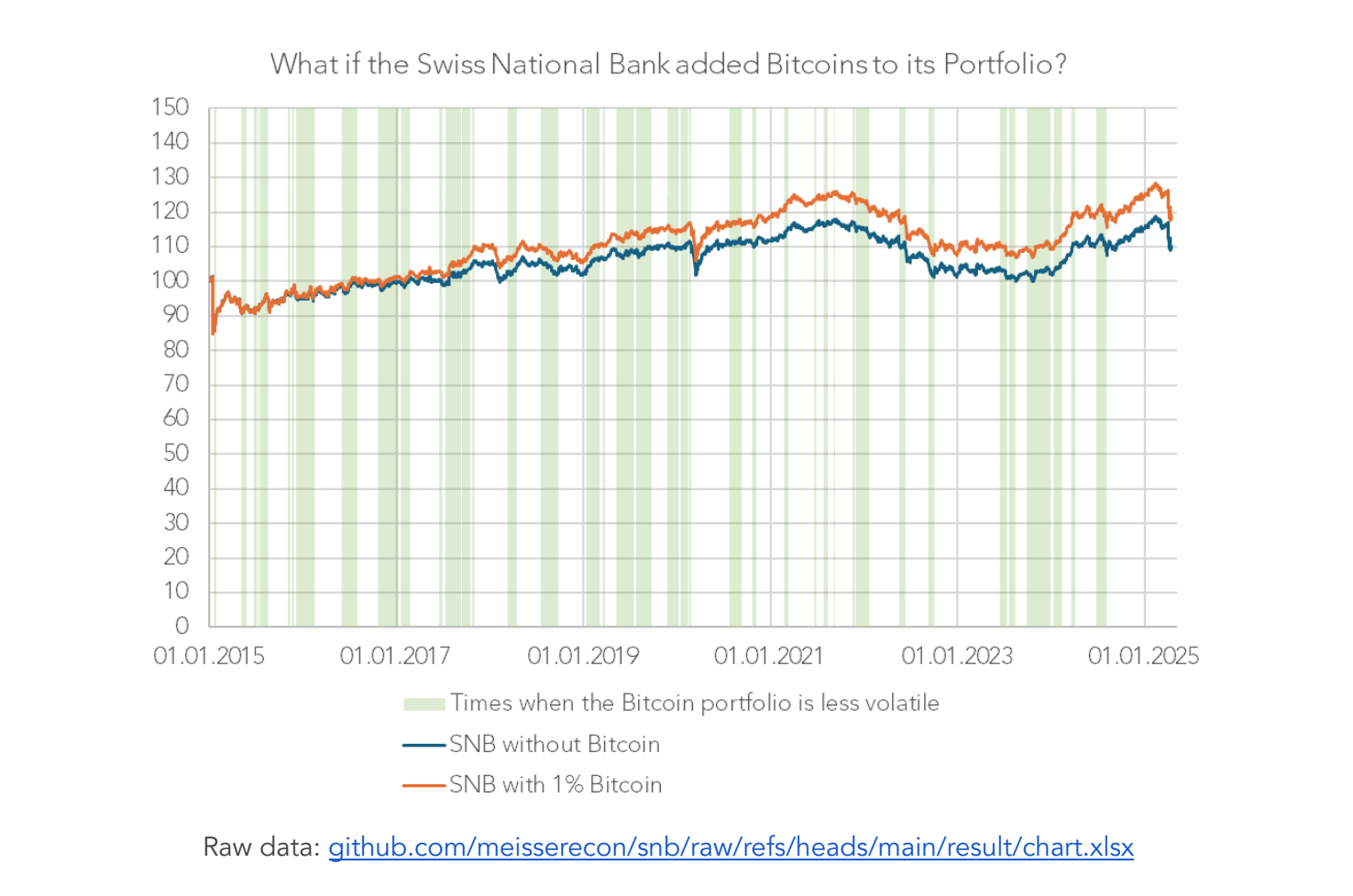
Swiss Central Bank Declines Proposal for Bitcoin Reserves
In remarks made on Friday, Swiss National Bank (SNB) President Martin Schlegel expressed that the institution will not hold bitcoin reserves, pointing to concerns about market liquidity and volatility.
- President Schlegel highlighted liquidity and volatility risks as the reasons behind the SNB’s decision not to incorporate bitcoin into their reserves.
- An analysis from the Bitcoin Initiative shows that a 1% bitcoin investment back in 2015 would have significantly boosted the SNB’s portfolio returns without adding much volatility.
- Currently, the Swiss National Bank gains indirect bitcoin exposure through shares in U.S. companies such as Strategy, Tesla, and MARA Holdings.
“Market liquidity for cryptocurrencies, while it may appear acceptable at times, is often questionable during crises,” Schlegel noted during the bank’s General Assembly. He added that the cryptocurrency market is known for its high volatility, which poses a risk for long-term value preservation. “Thus, cryptocurrencies, at this moment, do not meet our stringent requirements for inclusion in currency reserves.”
The remarks were made in response to the Bitcoin Initiative, which argues that integrating bitcoin into Switzerland’s treasury would enhance portfolio performance with minimal risk.
 Bitcoin Initiative
Bitcoin Initiative
Without bitcoin, the SNB’s other investments experienced about a 10% growth since 2015. The Bitcoin Initiative simulation suggests a 1% exposure to bitcoin could have nearly doubled returns during that timeframe with only a slight increase in annualized volatility.
“[Bitcoin] has hit new price records, showing resilience in stressful market conditions and maintaining high liquidity with daily trading volumes in the billions, even on holidays,” remarked Luzius Meisser of the Bitcoin Initiative and board member of Bitcoin Suisse.
He further mentioned the strategic importance as the U.S. has begun building a stockpile of bitcoin. Meanwhile, Christine LaGarde, President of the European Central Bank, has continuously criticized bitcoin as lacking inherent value and regarded it as a speculative asset associated with illicit activities. In contrast, Ales Michl, Governor of the Czech National Bank, hinted at the possibility of including bitcoin in future considerations but faced pushback from LaGarde.
The Romanian central bank and the Federal Reserve have also made public statements ruling out any plans to hold bitcoin as part of their reserves.
In summary, while the Swiss National Bank sees risks in holding bitcoin, indirect exposure is already included through investments in companies with bitcoin assets.



